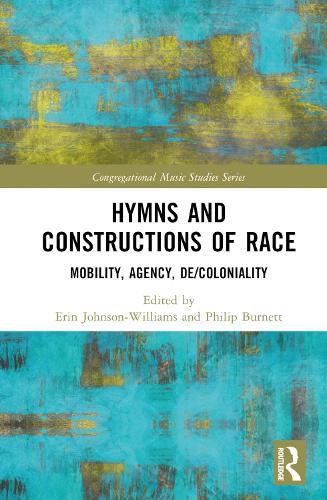Readings Newsletter
Become a Readings Member to make your shopping experience even easier.
Sign in or sign up for free!
You’re not far away from qualifying for FREE standard shipping within Australia
You’ve qualified for FREE standard shipping within Australia
The cart is loading…






Hymns and Constructions of Race: Mobility, Agency, De/Coloniality examines how the hymn, historically and today, has reinforced, negotiated, and resisted constructions of race. It brings together diverse perspectives from musicology, ethnomusicology, theology, anthropology, performance studies, history, and postcolonial scholarship to show how the hymn has perpetuated, generated, and challenged racial identities.
The global range of contributors cover a variety of historical and geographical contexts, with case studies from China and Brazil to Suriname and South Africa. They explore the hymn as a product of imperialism and settler colonialism and as a vehicle for sonic oppression and/or resistance, within and beyond congregational settings. The volume contends that the lived tradition of hymn-singing, with its connections to centuries of global Christian mission, is a particularly apt lens for examining both local and global negotiations of race, power, and identity. It will be relevant for scholars interested in religion, music, race, and postcolonialism.
$9.00 standard shipping within Australia
FREE standard shipping within Australia for orders over $100.00
Express & International shipping calculated at checkout
Hymns and Constructions of Race: Mobility, Agency, De/Coloniality examines how the hymn, historically and today, has reinforced, negotiated, and resisted constructions of race. It brings together diverse perspectives from musicology, ethnomusicology, theology, anthropology, performance studies, history, and postcolonial scholarship to show how the hymn has perpetuated, generated, and challenged racial identities.
The global range of contributors cover a variety of historical and geographical contexts, with case studies from China and Brazil to Suriname and South Africa. They explore the hymn as a product of imperialism and settler colonialism and as a vehicle for sonic oppression and/or resistance, within and beyond congregational settings. The volume contends that the lived tradition of hymn-singing, with its connections to centuries of global Christian mission, is a particularly apt lens for examining both local and global negotiations of race, power, and identity. It will be relevant for scholars interested in religion, music, race, and postcolonialism.